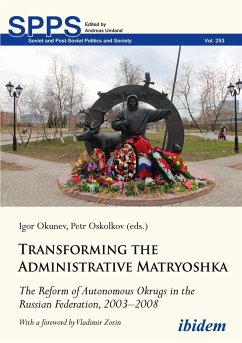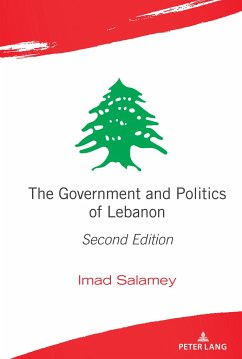
Administrative Reform in Post-War Lebanon
Donor Prescriptions and Local Realities
Versandkostenfrei!
Versandfertig in 6-10 Tagen
52,99 €
inkl. MwSt.

PAYBACK Punkte
26 °P sammeln!
During the 1990s, Lebanon, a small Eastern Mediterranean country, engaged in a comprehensive administrative reform with intellectual and financial support from major donors such as the World Bank, the United Nations Development Program and the European Union. Administrative reform aimed at laying the foundation for a modern government sector premised on the latest models of public management advocated by donors as international 'best practice'. Yet,achieving this objective proved to be a daunting, quasi impossible task in Lebanon's dilapidated and outdated post-war public service. This book in...
During the 1990s, Lebanon, a small Eastern Mediterranean country, engaged in a comprehensive administrative reform with intellectual and financial support from major donors such as the World Bank, the United Nations Development Program and the European Union. Administrative reform aimed at laying the foundation for a modern government sector premised on the latest models of public management advocated by donors as international 'best practice'. Yet,achieving this objective proved to be a daunting, quasi impossible task in Lebanon's dilapidated and outdated post-war public service. This book investigates the dynamics of how the reform initiative unfolded and evolved, with emphasis on actual operations and multiple impacts over a decade. In doing so, it contributes to thinking on the reconstruction of effective public service systems in post-conflict and war- torn societies.












